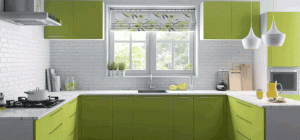Kitchen renovations can change the whole mood of your home, creating a fresh new space to cook and spend time with family—but a remodel can have quite a few moving parts. Here are a few things you can do to make life easier before renovating your kitchen.
Budget appropriately
There are plenty of financing options available if you’re looking to renovate your kitchen, including getting a home improvement loan, using savings, borrowing against your home equity, or borrowing against the cash value of your whole life insurance or other permanent life insurance policy. Whatever option you choose, it’s important to leave room in your budget for unexpected expenses. Renovations often bring to light problems that homeowners aren’t aware of, such as faulty wiring or outdated plumbing. While you’ve probably already considered the cost of the remodel itself, it can be a good idea to set aside some funds for unanticipated issues.
Declutter the space
Kitchens tend to accumulate quite a bit of stuff over time, from small appliances that don’t work to dinnerware you forgot you had. Before you embark on a kitchen renovation, take stock of what you have and dispose of items you don’t want or need anymore. You don’t want your new kitchen to be full of old and unwanted things, so let go of whatever no longer sparks joy. Once you’ve rounded up the items you want to get rid of, divide them into piles based on what you can donate, what you can recycle, and what you can throw away.
Plan your makeshift kitchen
Your contractor will give you his best estimate of how long the kitchen renovation will take, but unfortunately, there are no guarantees. Even if you’ve planned to eat out or get takeout during your reno, a makeshift kitchen helps if home improvements take longer than planned. If you’re fortunate enough to have a spare room or dining room, that’s a great spot for a temporary kitchenette. Otherwise, you can use a corner of the basement, garage, or even the living room. Remember to choose a well-ventilated area. You’ll want things like a microwave, a portable induction cooktop or hot plate, and slow cooker for some easy meals.
Get a head start on packing
Packing up your kitchen items can be a time-consuming task, so it’s a good idea to start early, with items you use less often. You’ll need to look for boxes and set up a storage area either in your home or elsewhere depending on how much stuff you have. A lot will depend on the size and style of your home (single-family homes may have more storage options than condos or co-ops), so look into renting a storage space if you’re short on room.
Source: iQuanti
Utilizing the cash value through policy loans, surrenders, or cash withdrawals will reduce the death benefit; and may necessitate greater outlay than anticipated and/or result in an unexpected taxable event.
Read the full article here














